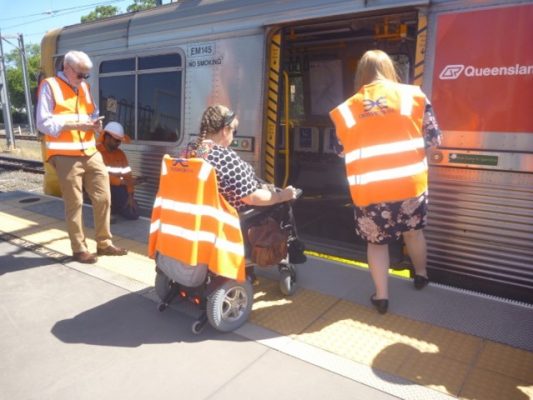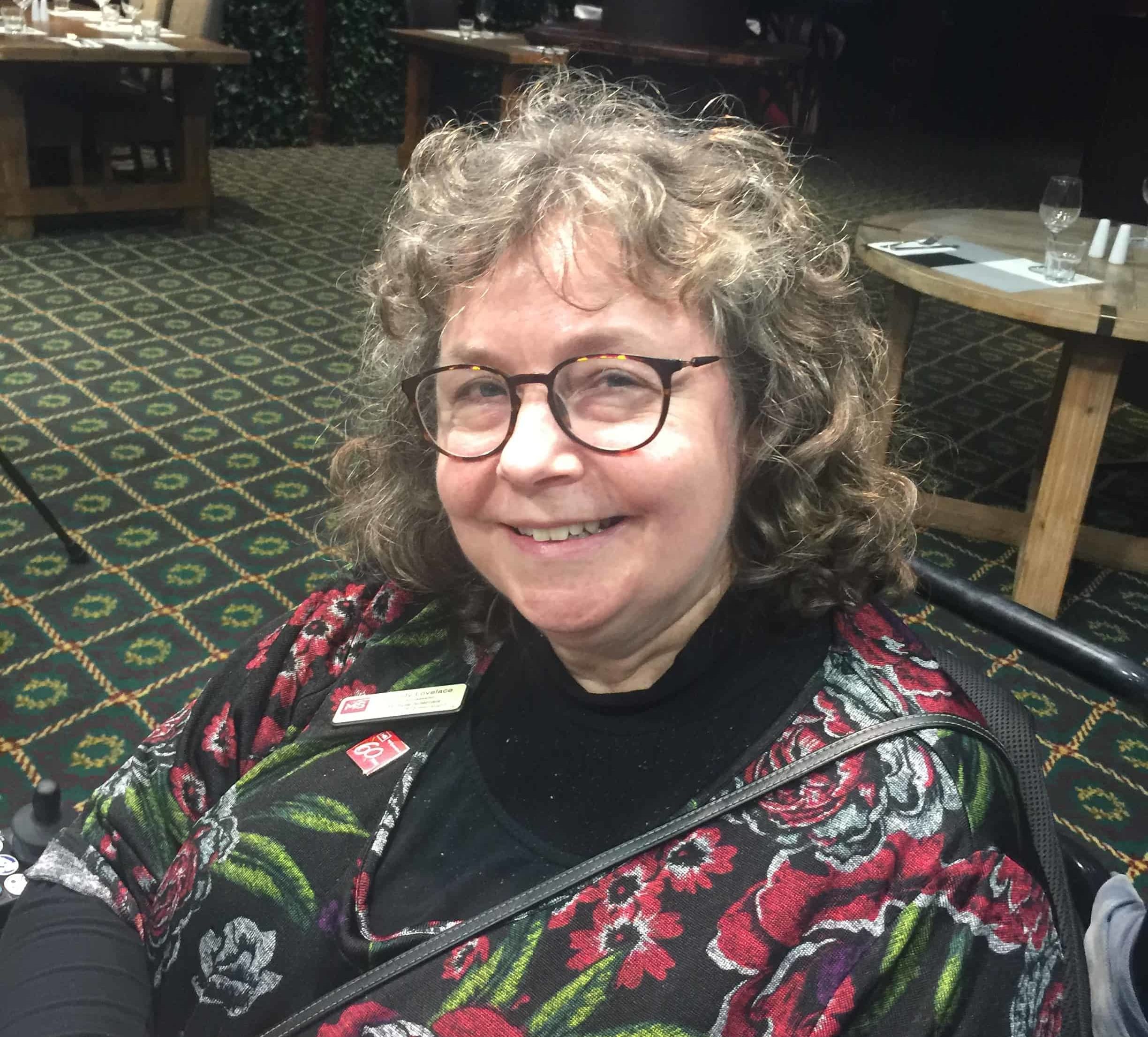Always encouraging equitable accessible solutions for community, public and private spaces
This month I lost a very dear friend and colleague Wendy Lovelace. Wendy and I met 10 years ago when we were both working on the Brisbane City Council Flood Recovery Upgrades to the ferry terminals and the ferries in 2012. She was working with the ferry design team and I was on the land side audit team. We had an instant friendship from that moment on. Wendy was an architect living with Multiple Sclerosis.
This affected her walking and the use of her left hand however did not impede her having a full life working as an advocate on behalf of people with a disability. Wendy focused her work on transport and housing, as well as enjoying her passion for music, art, reading, socialising with friends and family and all things Japanese.

Her working life consisted of going from one Accessibility Reference Group workshop to another, contributing her accessibility knowledge of lived experience to every major transport project in Brisbane which included her membership of QATAC.https://www.tmr.qld.gov.au/About-us/Our-organisation/Accessibility-and-inclusion/Queensland-Accessible-Transport-Advisory-Council
In recent times, our friendship grew beyond work, as she would come to Roma St Parklands to exercise. She loved walking through the Parklands and taking many photos of the flowers or the Enchanted Garden light display at Christmas.
More recently Wendy’s health had deteriorated, and she began also to experience what it was like to not be able to speak. With this life experience she became a new advocate, not only for persons with mobility impairments but also for persons in the community who are non- verbal. Wendy’s communication did not hold her back and her ‘voice’ continued to be heard through different forms of communicating at the many forums she attended.
Through all this Wendy maintained her sense of humour and even though she was non-verbal, her smile and the way her eyes lit up would let you know she had seen the funny side.
My dear friend, I will miss our walks, chats, sneaky gin and tonics and your amazing outlook and spirit. Thank you for your bravery, passion knowledge and experience which will be greatly missed by all. Rest peacefully.
Multiple sclerosis (MS) is one of the most common diseases of the central nervous system. It may affect the brain, spinal cord and optic nerve and impacts more young people in Australia than any other chronic progressive neurological disease.
Although there is currently no known cure for MS many therapeutic and technological advances are helping people manage symptoms and get the best out of life.
Definition: https://www.msqld.org.au/
